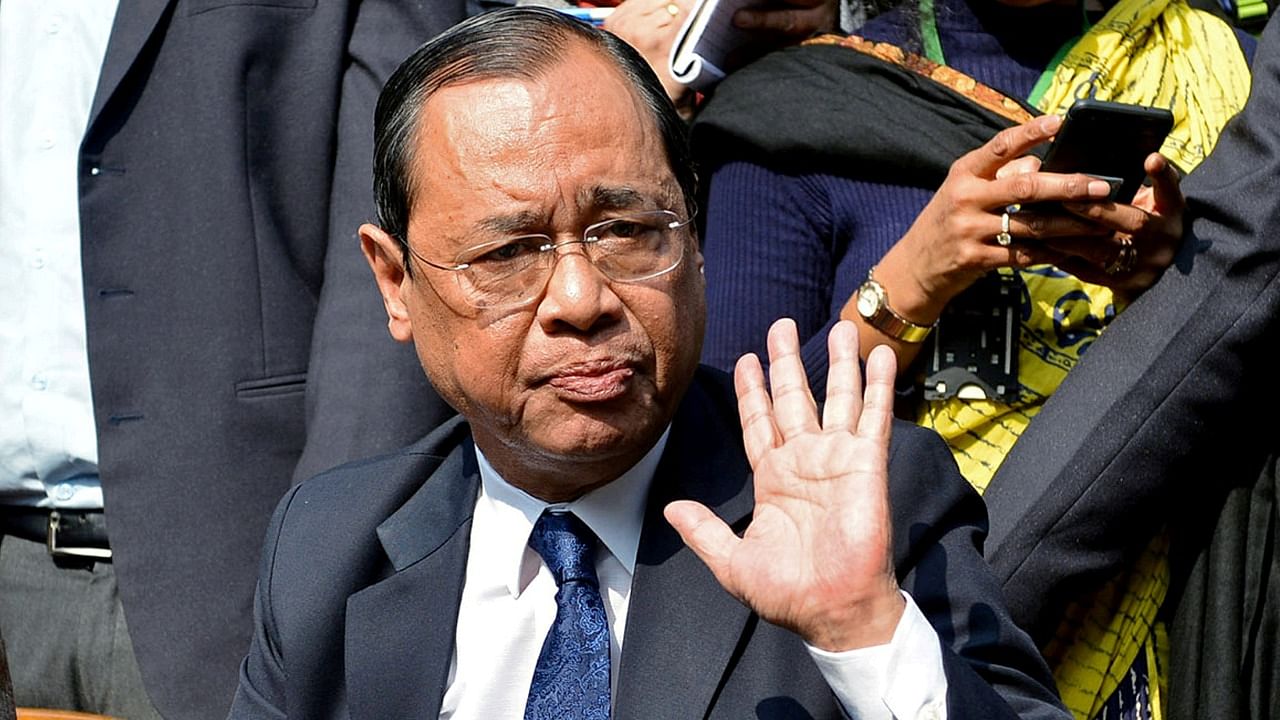
Former Chief Justice of India Ranjan Gogoi, who suffered ignominy of being the only head of judiciary to have faced sexual harassment charges, on Wednesday admitted he should not have been a part of the bench to deal with the matter.
"In hindsight, I should not have been a judge on the bench. It might have been better, if I was not part of the bench. We all make mistakes. No harm in accepting it," he said.
Taking up questions on controversy surrounding his tenure at the launch of his autobiography 'Justice for Judge', Justice Gogoi said it all happened because his reputation was being questioned.
In April, 2019, a woman employee had accused the then-CJI of sexual harassment. Justice Gogoi headed a three-judge bench to deal with the issue after registering a Suo Motu case.
With regard to subsequent clean chit to him by an inhouse committee, he said, "it is only at the discretion of the full court. It has been laid down by a judgment. In house proceeding is not toothless. If found guilty, a judge has to step down and the President approves impeachment."
His successor Justice S A Bobde, who headed the inhouse committee could have decided against him and easily got have extra seven months as the CJI, he said.
About subsequent reinstatement of the woman employee, Justice Gogoi said it had happened during his tenure. She made an application with Justice Bobde for considering her case on humanitarian ground. He reinstated her along with two other staff dismissed for changing order of the court allegedly to favour Anil Ambani, he pointed out.
On his Rajya Sabha nomination, Justice Gogoi, asked, "What would you have me accept, Governorship or NHRC chairman. Financially I would have been better. I have not taken a penny from Rajya Sabha and not even the amount that is due to me to engage office help."
The former CJI insisted he continued to maintain his independence, despite being a nominated member of Upper House.
Justice Gogoi demitted office on November 17, 2019. He was the first CJI from north-eastern state of Assam. He was elevated to Supreme Court as a judge on April 23, 2012. He headed the five-judge bench which decided the Ayodhya dispute. He also presided over a bench which rejected a plea for probe into Rafale deal.
Watch latest videos by DH here:
